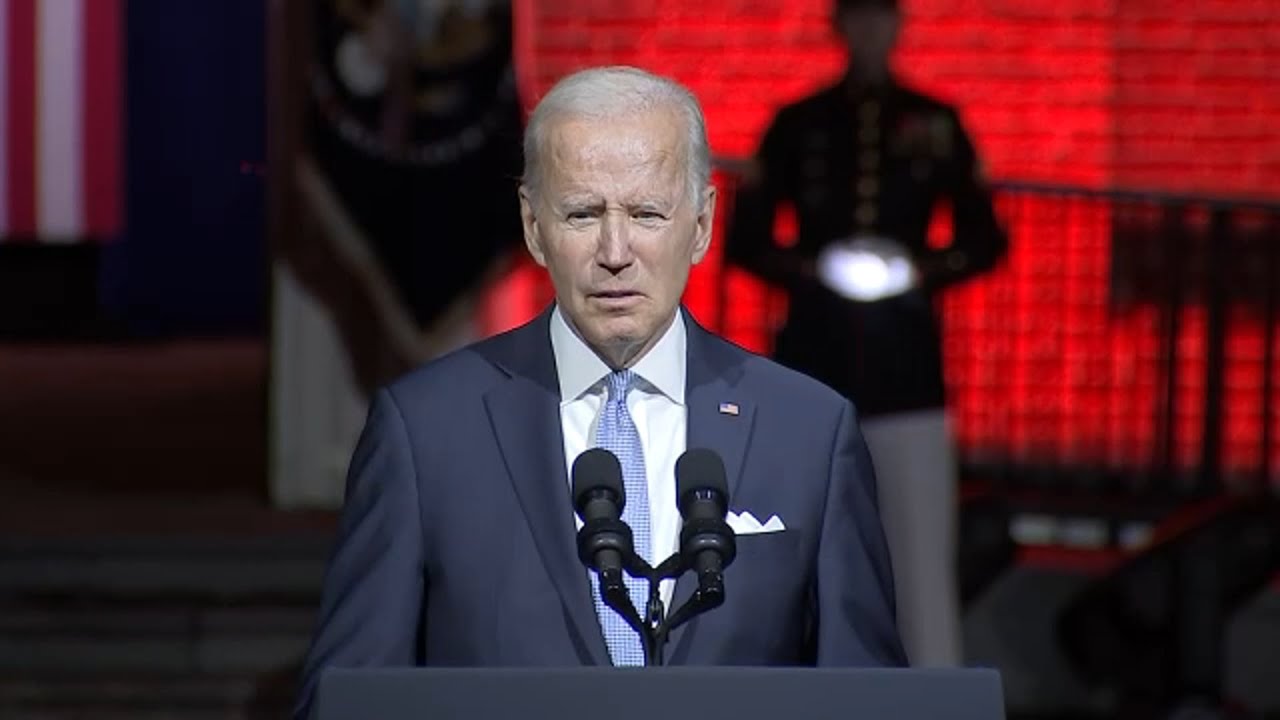Joe Biden has now publicly engaged in election interference, a move that no thinking American voter can deny. So, in other words, at least half of the country might deny it, because half of this country find it nearly impossible to think. This brazen act comes on the heels of Senate Majority Leader Chuck Schumer’s call for new elections in Israel, a statement that drew criticism from both Republicans and Democrats alike. While some Democrats distanced themselves from Schumer’s interference, Biden openly supported the New York Democrat’s remarks.
The controversy began when Schumer, in a Senate floor speech, expressed his belief that the Netanyahu coalition no longer fit the needs of Israel after the attack by Hamas on October 7. He argued that the world had changed dramatically since then and that Israel was being stifled by a governing vision stuck in the past. Schumer’s comments drew immediate criticism from Republicans and even some prominent Democrats who believed that foreign interference in Israel’s democratic process was inappropriate.
Rather than distancing himself from Schumer’s interference, Biden openly supported the New York Democrat’s statement. During a meeting in the Oval Office with Irish Prime Minister Leo Varadkar, Biden declined to elaborate on the speech but stated that Schumer had expressed serious concerns shared by many Americans. While Biden’s support for Schumer may not have surprised his supporters, it raised eyebrows among those who believe that foreign interference in elections is a serious matter.
The question arises: Are Biden’s actions regarding Israel more serious election interference than anything Russia allegedly did in 2016? This issue has sparked a heated debate among political commentators and voters. While some argue that Biden’s support for Schumer’s interference is a clear example of election meddling, others believe that it pales in comparison to Russia’s alleged attempts to influence the outcome of the 2016 U.S. presidential election. The answer to this question largely depends on one’s political stance and perspective.
In response to the controversy, White House national security advisor John Kirby clarified that Biden’s remarks were not intended to communicate a lessening of support for Israel from the Biden administration. He emphasized that the administration would continue to support Israel in its fight against Hamas and work towards a temporary cease-fire. Kirby’s statement aimed to assuage concerns that Biden’s support for Schumer’s interference signaled a shift in U.S.-Israel relations.
Unsurprisingly, Schumer’s call for new elections in Israel drew strong disapproval from Republicans, with Senate Minority Leader Mitch McConnell criticizing it as grotesque and hypocritical. Even Netanyahu’s rivals in Israel, such as Benny Gantz, called Schumer’s remarks a mistake. The bipartisan criticism highlights the extent to which foreign interference in elections is viewed as inappropriate and a violation of democratic principles.
While the White House maintains that its support for Israel remains unwavering, critics argue that Biden’s actions send a confusing message. The incident adds to the existing tensions between the two countries, particularly regarding policy differences on issues such as the Israeli-Palestinian conflict and Iran’s nuclear program.


Leave a Comment